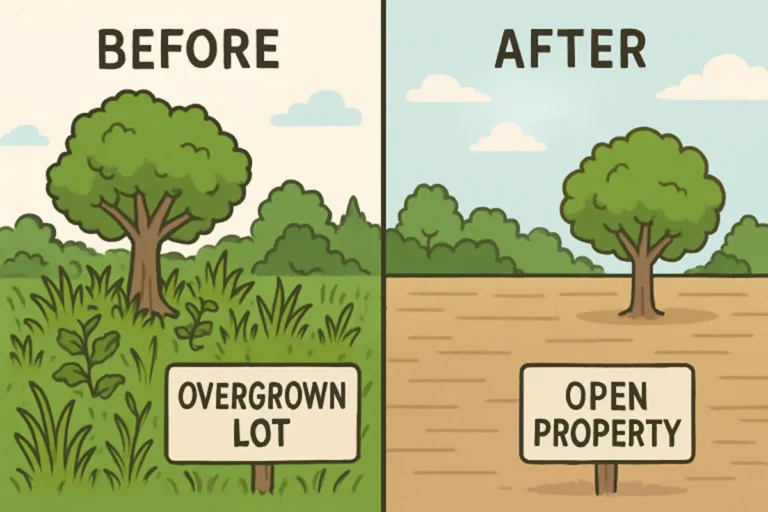Smart Strategies for Protecting Real Estate in a Changing World
Key Takeaways
- Understanding shifting real estate trends is essential for safeguarding property assets and investment value.
- Legal steps and comprehensive estate planning are central to real estate protection and risk management.
- Keeping property insurance updated and appropriate reduces exposure to unexpected events and minimizes financial loss.
- Collaboration with industry professionals creates a robust support network for navigating legal, financial, and market uncertainties.
Table of Contents
- How Market Trends Affect Property Risks
- Legal Steps Every Property Owner Should Consider
- Estate Planning as a Real Estate Safety Net
- Property Taxes and Unexpected Costs
- Teaming Up with Experts
- Adjusting Real Estate Strategies for the Future
- Frequently Asked Questions
How Market Trends Affect Property Risks
The real estate world is anything but static. Economic cycles, population migrations, shifts in technology, and government policy can all dramatically reshape property owners’ risk profiles. In the last few years alone, homeowners and investors have seen a cascade of changes—from pandemic-driven migration patterns to fluctuating mortgage rates and supply shortages. Tight lending standards combined with affordability issues are affecting communities in unexpected ways. Some neighborhoods have seen steep increases in value, while others have cooled or even reversed course.
Staying alert to market signals gives owners a proactive edge. For instance, if interest rates rise, buyers might disappear, and home values could dip, making now a critical time to assess long-term strategy or reconsider refinancing. Landlords in urban centers may need to adapt how they rent to meet changing tenant demand. For questions around risk management, property holding structures, and legal solutions that fit changing conditions, owners should consider the guidance available at https://www.cunninghamlegal.com/real-estate-matters/, where tailored insight can help individuals and families prepare for real estate uncertainties. No one can predict the market perfectly, but with the correct information, the odds of predicting radically increase. Being informed also helps owners anticipate shifts with the correct information before they fully materialize, allowing for timely decision-making. Flexibility can be a key advantage when diversifying property types, exploring alternative markets, or leveraging tax-efficient strategies. Ultimately, understanding the broader forces at play empowers real estate owners to act, rather than react, in a rapidly changing landscape.
Legal Steps Every Property Owner Should Consider
Navigating real estate law means more than just signing a stack of documents at closing. Title clarity is critical overlapping deeds, old liens, or cloudy ownership chains are not as rare as one might hope. Title insurance helps, but confirming property boundaries and resolving old claims before issues arise establishes a stronger foundation for the future. Lease agreements should always spell out rights and responsibilities in plain, specific language, whether for residential units or commercial investments. Ambiguities in contract terms often turn into disputes later, so it’s best to get a legal review at the outset.
- Complete a fresh title search every time a property changes hands.
- Ensure all agreements are clear, comprehensive, and tailored to the property’s needs.
- Monitoring changes to zoning ordinances and local property codes that could trigger compliance practices education will not guarantee a problem-free ownership experience. Still, it certainly lowers the odds of expensive or stressful surprises. Real estate professionals and legal experts frequently stress that prevention—a modest investment in early due diligence yields future stability. As the legal landscape evolves, continual education in best practices will only grow more critical.
Estate Planning as a Real Estate Safety Net
Passing down real estate can be either a gift or a burden, depending on the planning involved. Estate planning is essential for anyone who wants their property to benefit loved ones or charitable causes without unnecessary obstacles. A living trust is an effective tool that allows assets to bypass the public probate process, preserving privacy, minimizing taxes, and reducing confusion during grief. In areas with rapidly rising property values, a lack of planning can lead to heirs needing to sell assets to cover estate taxes or legal costs, undermining the goal of building generational wealth. Legal tools like powers of attorney and healthcare directives help families avoid costly delays and disputes during illness or incapacity.
Additionally, homeowners should regularly review their property insurance. Many purchase and neglect basic coverage, leaving significant gaps as situations evolve. Annual insurance reviews are essential; homeowners should consult agents familiar with local risks and consider adding coverage for specific hazards, home-based businesses, or high-value items. Thoughtful insurance and estate planning ensure your property remains a legacy rather than a burden.
Property Taxes and Unexpected Costs
Property taxes play a significant role in the affordability and sustainability of real estate investments. Communities across the United States regularly reassess home values to fund schools, police, fire, and infrastructure, so it’s not unusual for an owner to be surprised by a sudden uptick in their annual bill. At the same time, unexpected costs—like mandatory safety upgrades, storm damage, or even special neighborhood assessments—can shrink margins or stretch budgets.
Savvy owners pay close attention to assessment notices and subscribe to local government updates for warning of potential changes. Knowing your rights to challenge or appeal a property value assessment can save thousands of dollars over the lifetime of ownership. States and localities post detailed appeal timelines on their official sites, and some even host free workshops for taxpayers. Keeping accurate records like appraisals, photographs, and documented repairs makes the appeal process much smoother if needed.
Teaming Up with Experts
Handling every aspect of property ownership alone is rarely realistic, especially as laws, markets, and family circumstances evolve. Collaboration is invaluable. Real estate attorneys can flag weak points in legal documentation or recommend restructuring options such as limited liability companies to help protect against lawsuits. Tax advisors strategize ways to minimize annual tax hits or maximize eligible deductions.
- Financial planners help align property holdings with broader retirement or education savings goals.
- Realtors and property managers provide boots-on-the-ground intelligence in rapidly changing neighborhoods or markets.
- Networking with local associations or participating in owner forums keeps knowledge current and accessible.
Building a stable of experts means having ready access to insights that make a difference. Whether you’re planning an expansion, facing an emergency, or seeking an outside perspective before making your next big move.
Adjusting Real Estate Strategies for the Future
Flexibility is often cited as the hallmark of successful property ownership. As technology weaves deeper into daily life, smart security, energy-efficient upgrades, and remote access features become attractive to owners and tenants. Younger generations may prioritize gig-based rentals, so short-term or flexible lease structures can help keep occupancy rates up. Selling, renovating, holding, or passing a mix of residential, commercial, and vacation property builds resilience in the face of sudden market shifts.
Periodic reviews of your real estate strategy, at least every couple of years, reveal gaps and new opportunities. Life circumstances, such as marriage, children, job changes, or retirement, can influence whether to sell, renovate, hold, or pass property along. The best plans incorporate family dialogue and the perspectives of trusted professionals, weaving expertise with the personal nature of real estate.
Frequently Asked Questions
- How often should a property owner revisit their real estate protection plan? Experts recommend a complete review every 2-3 years or immediately after major life, legal, or market shifts occur.
- Is estate planning only necessary for high-value or multiple properties? No. Any property owner benefits from clear documentation of transfer wishes and legal authority in case of incapacity, regardless of portfolio complexity.
- Should insurance coverage constantly be updated after renovations or upgrades? Absolutely. Even modest additions can change coverage requirements, and the correct policy update ensures no gaps exist if disaster strikes.
- What’s the best approach for monitoring property tax changes? Stay informed through assessment notices, local government sites, owner associations, and dialogue with tax professionals being proactive can identify new liabilities before they become burdensome.
Also Read-Let the Light In: The Significance of Windows in Home Design





